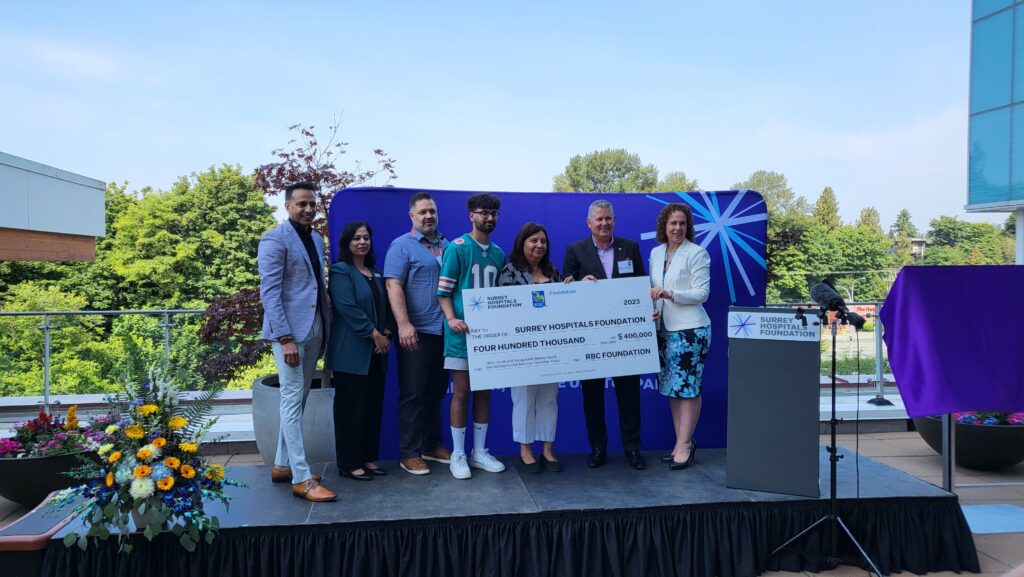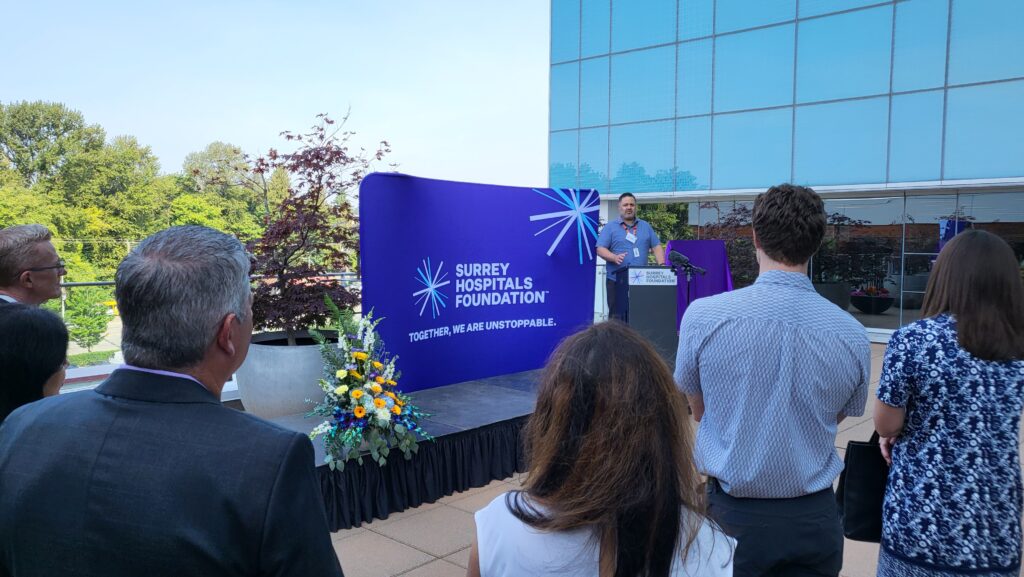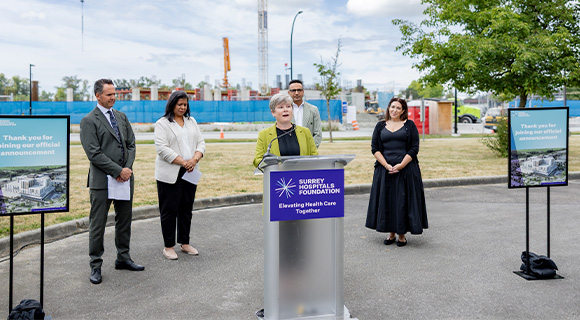The Surrey Hospitals Foundation is receiving $400,000 from RBC Foundation over four years to help kick-start a project to establish a special healthcare team to support children, youth and young adults with mental health challenges transition from hospital care to community care services.
The announcement was made yesterday at Surrey Memorial Hospital where the RBC Foundation contribution and the formation of the Child, Youth & Young Adult Mental Health & Substance Use (CYYA MHSU) Services Transition Team was announced.
“We are incredibly grateful to RBC Foundation for their generous contribution to kick-start this project and form this important mental health transition team to assist vulnerable children, youth and young adults as well as their families,” says Harp Dhillon, Chair of the Board of Directors for Surrey Hospitals Foundation. “Their generous donation and the ongoing support of our immensely dedicated donor community are the reasons why Surrey Hospitals Foundation is able to better assist our healthcare services team at Surrey Memorial Hospital.”

RBC Foundation’s investment will go towards forming the Surrey Memorial Hospital CYYA MHSU Services Transition Team, to provide an overlap of care between the hospital care and community treatment services as it takes time for children, youth and families to build trusting relationships with community care providers.
“RBC is proud to be part of this vital pilot project with the Surrey Hospitals Foundation, partnering in the creation of a special health care team committed to supporting youth and young adults when they transition from hospital care to community care” says Martin Thibodeau, Regional President, BC Region, for RBC. “At RBC, our purpose centres on helping clients thrive and our communities prosper, and we believe supporting our healthcare system is integral to achieving those goals. This RBC Foundation donation is an investment in our collective future, underpinning the need to bridge the gap in the continuity of care in mental health & substance-use support, ensuring children, youth and young adults receive timely and compassionate care within their own communities.”
Surrey Memorial Hospital treats more children and youth for mental health issues than any other hospital in BC. The proportion of hospital stays due to mental health concerns in children and youth is increasing. In fact, in 2021, Surrey Memorial Hospital had over five hundred admissions for youth mental health.
Nationally in 2020, nearly one in four hospitalizations for children, youth and young adults ages five to twenty-four were for mental health conditions. In 2020, Kids Help Phone reported twice as many interactions across Canada compared with 2019.
Discharge from hospital and connection to community services is a vulnerable period for people with mental illness. In fact, the 30-day readmission rate for mental illness in Canada was 12 per cent in 2016, and over half of these readmissions occurred within 14 days. It is also concerning that the first few weeks after discharge are a high-risk period for suicide.

“This special transition team will go a long way in helping support children, youth and families with mental health in the vulnerable time after being discharged from the hospital, which can often be overwhelming and difficult,” says Mike Kenyon, Director of Clinical Operations, Mental Health and Substance at Fraser Health. “Research has shown that there are benefits to having a transition team in reducing hospital visits, decreasing the length of stay in the Emergency Department and acute care units, decreasing psychiatric readmissions, reducing self-harm and improving school reintegration.”
The Surrey Memorial Hospital CYYA MHSU Services Transition Team will provide up to four weeks of support for vulnerable young people with mental health and their families as they are being discharged from the hospital and into community treatment services. Support services include timely post-discharge assessment of psychiatric needs, interdisciplinary enhanced support, medication management, consultations with a psychiatrist, home visits and enhanced safety planning. The transition team may also create care plans, help with school reintegration and optimize physical health care and social supports.


















